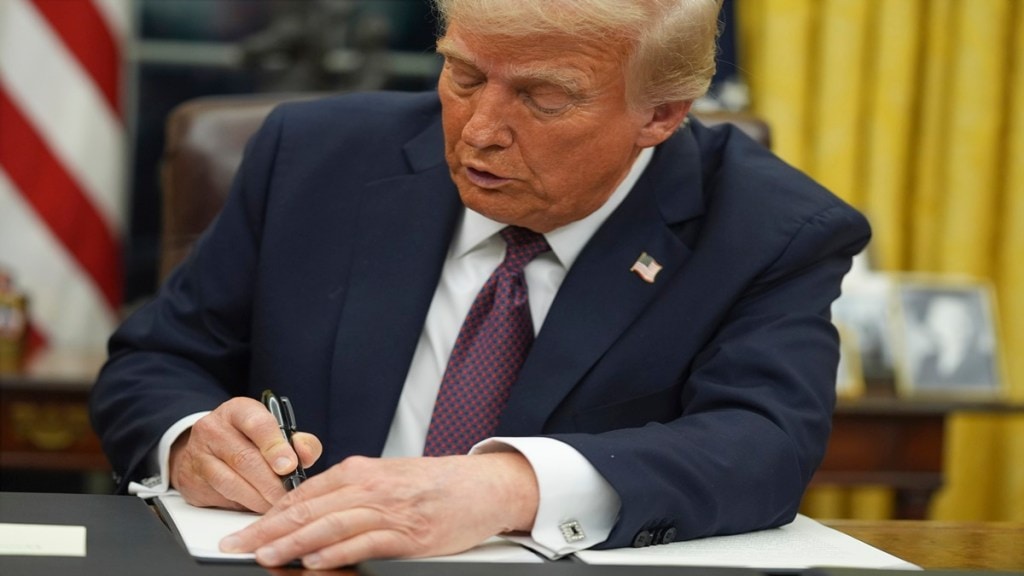In a move reminiscent of his first term, President Donald Trump has once again committed to increasing economic sanctions on Iran, resuming his `maximum pressure’ campaign against the country. This tough stance, designed to penalize Iran for its nuclear ambitions, is set to intensify amid growing tensions in the Middle East, particularly as the situation in Gaza and the broader Israel-Hamas conflict continue to evolve.
Trump’s ‘Maximum Pressure’ Strategy
On Tuesday, Trump signed a memorandum reimposing sanctions on Iran, targeting the country `nuclear program’, a policy similar of the one he pursued during his previous presidency. These sanctions, described as some of the most stringent in modern history, are designed to further isolate Iran economically and politically, while placing significant pressure on its nuclear ambitions. In his remarks, Trump indicated that this `maximum pressure’ policy would serve as a deterrent to Iran’s nuclear development, though he hoped the severe measures would not need to be fully implemented.
Trump, speaking at the signing ceremony, expressed his discomfort with the policy but maintained that the US had `no choice’ but to act decisively. “This is one that I am torn about. Everybody wants me to sign it. I will do it. It’s very tough on Iran,” he said. “Hopefully I am not going to have to use it very much. But we have to be strong.”
He also made it clear that, should Iran escalate tensions further, particularly with any aggression towards the US or its allies, the consequences would be severe. “If I am assassinated by Iran, they get obliterated. There won’t be anything left,” Trump stated, underscoring his hardline approach to the Islamic Republic.
Iran’s Strategic Response
Experts are watching closely as the situation unfolds, with many predicting that Iran will attempt to solidify its strategic alliances, particularly with Russia and China, in the face of mounting pressure. According to Md. Muddassir Quamar, Associate Professor at the Centre for West Asian Studies, Jawaharlal Nehru University, tensions between the US and Iran are likely to escalate, given the broader regional context.
Quamar explains, “The chances of tensions, and even a confrontation, between the US and Iran have increased given the Israel-Hamas war and the situation in Gaza, as Israel considers Iran responsible for the October attack.” With the US doubling down on its sanctions and military posturing, Iran will likely seek to deepen its ties with other global powers to counterbalance American influence.
He also emphasizes the geopolitical implications of Trump’s renewed sanctions, stating, “In all likelihood, Iran is likely to come under serious economic, political, and military pressure and would try to consolidate its strategic partnerships with Russia and China.” However, he warns that Tehran would face more pressure because of the significantly weakened and diminished ‘axis of resistance’ challenging its forward defence policy.

